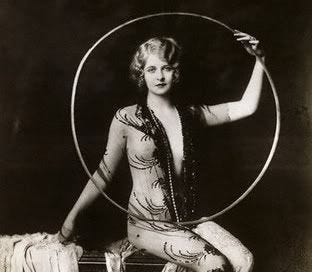Mastering Historical Research: In Several Rounds with the Help of Loops
Why an Experimental Process Is Important When Researching Characters
Researching historical characters can be challenging. A clear, structured process isn’t just helpful—it’s essential for ensuring authenticity and depth.
By using “iterative loops,” you can refine your research, enhancing both accuracy and detail at every stage.
The Importance of a Structured Approach
A well-defined research process allows historians, writers and filmmakers to systematically uncover and analyse information about historical characters. I will talk of actors, filmmakers, directors and producers here, as well as screenwriters and authors: let me call you all “researchers” here, as the goal is to research the past. K? Lets dive in.
Here are several key benefits:
Clarity and Focus: A clear process provides a roadmap. When researching complex characters, particularly those with rich and multifaceted backgrounds, a structured approach helps maintain focus, ensuring that important details do not get overlooked.
Improved Collaboration: In collaborative projects, having a shared research process fosters communication and alignment among team members. Each participant can understand their role and how their contributions fit into the larger picture.
Quality Control: Iterative loops in the research process enable continual refinement of information. By revisiting sources and findings, researchers can cross-verify details and adjust their understanding—or their story!—as new information emerges.
Understanding Iterative Loops
This is important! The concept of iterative loops in research signifies a cyclical approach, where researchers continuously revisit and refine their understanding based on new insights. Here’s how it works:
Initial Research Phase: Begin with a broad exploration of the character’s life, context, and significance. This phase involves gathering diverse materials, from primary sources to secondary analyses. — What do I mean by ‘primary’ and ‘secondary’ sources? Read it here. »
Analysis and Hypothesis Formation: After collecting initial data, researchers analyse the information, identifying key themes, relationships, and questions that arise. Hypotheses about the character’s motivations and context can be formed during this stage.
Refinement: Researchers return to the sources, seeking additional materials that address unanswered questions or reinforce existing hypotheses. This might involve delving deeper into archives, reaching out to experts, or exploring new databases.
Validation: New findings are cross-referenced with previous data. This iterative loop not only strengthens the accuracy of the research but also enriches the character’s portrayal with nuanced details that might have otherwise been missed.
Final Presentation: After several iterations, researchers can compile their findings into a comprehensive profile or dossier. This final product is a rich tapestry woven from the threads of diverse insights, all grounded in meticulous research.
Iterative Research in Action
Consider the character of Elizabeth I of England. An initial inquiry might focus on her reign and political decisions. However, upon deeper investigation, researchers may discover personal letters, accounts from contemporaries, or even artistic representations that reveal insights into her personality and motivations.
By employing iterative loops, researchers can continuously refine their understanding, integrating perspectives from different periods, cultural contexts and different historical interpretations. This approach not only results in a more accurate portrayal but also one that resonates emotionally with audiences.
It also helps to take the pressure off you: you don’t have to get every little detail right the first time. You can always go back and research additional details, or add or subtract information to make a better story.
How Can You Apply This in Your Own Work?
In the realm of historical character research, a well-defined process grounded in iterative loops is invaluable.
It transforms a daunting task into a manageable journey, enriching the portrayal of historical figures with authenticity and depth.
For writers, filmmakers, biographers and historians alike, embracing a structured research approach—with several stages or loops—is essential for crafting narratives that not only inform but also inspire their audience.
So, When Should You Stop Researching?
Great question. And here’s the catch: Stop before you feel ready! I’ve seen many writers and filmmakers venture into research, and endless refinement, and more refinement, and more refinement, and more refinement… and they never finished their work.
At some point you just need to stop.
And write the novel. Or make the film…
Cheers from my desk in an archive,
~ Barbara





